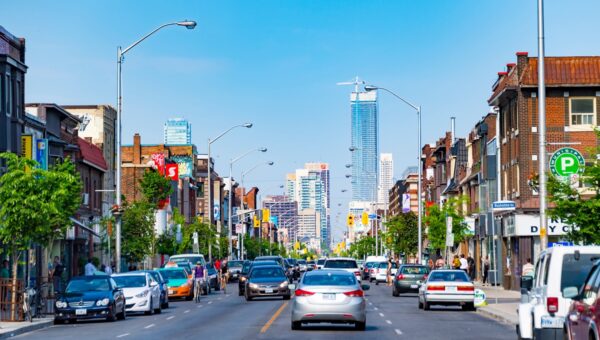
Traffic congestion is a major problem in Toronto, raising the potential for serious and fatal car accidents. As we wrote about last month, the traffic in Toronto is actually ranked among the worst worldwide, according to a study.
To address the danger and frustration posed by regular traffic jams, the Toronto Board of Trade recently unveiled an $85 million plan that includes the installation of more smart signals and offers recommendations for improved traffic flow.
Contributing factors to Toronto's backed-up traffic
Traffic officials say that Toronto's slow-moving traffic woes stem from a surge in construction-related road closures and the increased demand for post-pandemic special events - both of which can cause major roadway congestion, leading to confusion and frustration. This problem guided the TBT's proposed changes to Toronto's traffic plan.
In general, the updated Congestion Management Plan (CMP) seeks to leverage technological advances for better communication, coordinated traffic flow, and strategies for improved right-of-way access and overall traffic management. The plan is backed by a nearly $85 million investment.
"The end of this period of intense construction will see a more beautiful, vibrant city with additional affordable housing and increased transit and cycling options," the TBT study says. "However, to help mitigate the short-term impacts of congestion, Transportation Services staff have been working to refocus the efforts of the CMP to specifically target those areas that will help minimize delays for all road users, and to utilize additional communication tools in order to ease commuter frustration."
TBT proposals to cut Toronto traffic congestion
Traffic congestion can create an environment where drivers are more likely to make mistakes and engage in risky behaviors. This leads to a higher risk of car accidents for everyone. Here are some highlights and proposals from the TBT study that may help to alleviate traffic congestion:
- Require construction sites to have clearly posted QR codes that provide real-time information on projects, including the company responsible, the nature and duration of closures, and a 24/7 emergency contact number.
- Expand Toronto's four current "Construction Hubs." These are designated areas where construction projects can coordinate to improve project management, resource allocation, and traffic control. Hubs recommended for expansion include Downtown, East Harbour, Lake Shore West, and Yonge-Eglinton. New hubs are proposed in the wards of Etobicoke Lakeshore, Willowdale, and Beaches-East York.
- Establish a dedicated traffic management team with various stakeholders to enhance traffic planning during major events and concurrent construction.
- Explore Intelligent Transportation Systems (ITS), including AI and IoT technology, to optimize traffic signal operations and enhance transportation efficiency and safety in the city.
Smart signals and coordinated efforts
Toronto already invested a lot of study and effort into fixing Toronto traffic jams. Here are just some of the steps Toronto has taken to make roadways less crowded and safer:
- Toronto recently began using "smart" signals, which use AI and real-time data to keep traffic moving as smoothly as possible. There are 60 installed throughout the city, with plans to add another 30 by the end of the year on roadways like Sheppard Avenue East, Kingston Road, The Queensway (East), and Lake Shore Boulevard West. Smart signals on Don Mills Road, The Queensway (West), Lawrence Avenue, and Steeles Avenue West are proposed for 2024. The project is expected to cost around $85 million in total.
- Transportation Services is working to update its road restrictions website with more information about impacts on road, pedestrian, and cycling infrastructure.
- The city is collaborating with the Toronto Police Service to have officers actively manage key intersections during high-volume periods. By March, the city hopes to increase the number of traffic agents in the field from about 12 to 45.
When accidents happen, crash victims should know their legal options
Toronto's efforts will almost certainly make city streets safer, but traffic jams and car accidents will still happen. If you were injured or a loved one died in a Toronto car accident, contact Smitiuch Injury Law for a free consultation. We can answer your questions, explain your potential legal options, and help you decide how to move forward. There is no obligation to hire; just information you know you can trust from a personal injury law firm with decades of experience. From our offices in Toronto, Brantford, and Simcoe, we proudly serve clients across the Greater Toronto Area (GTA).

